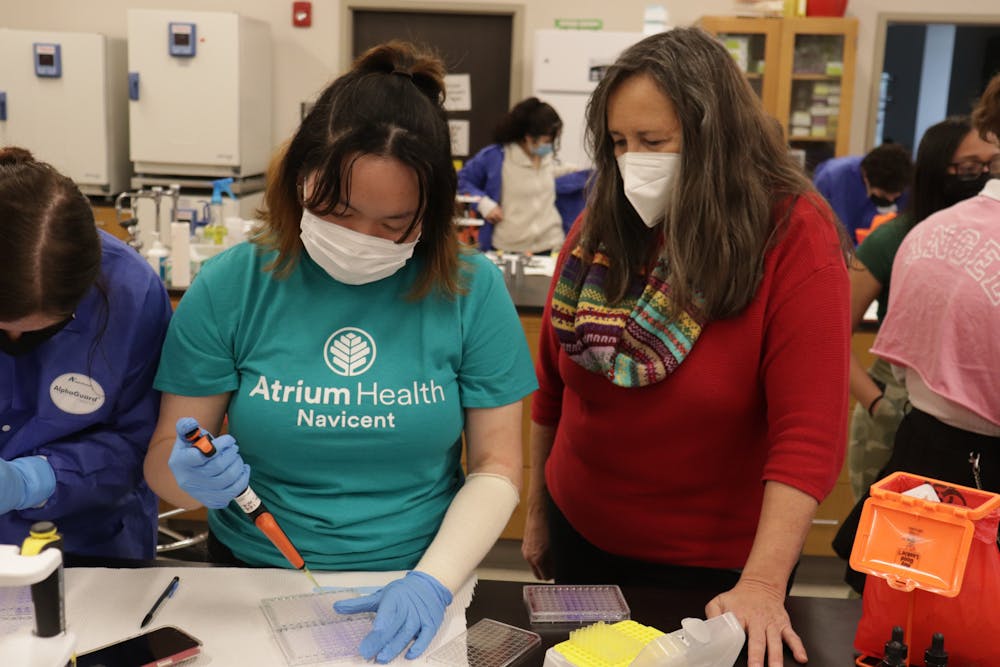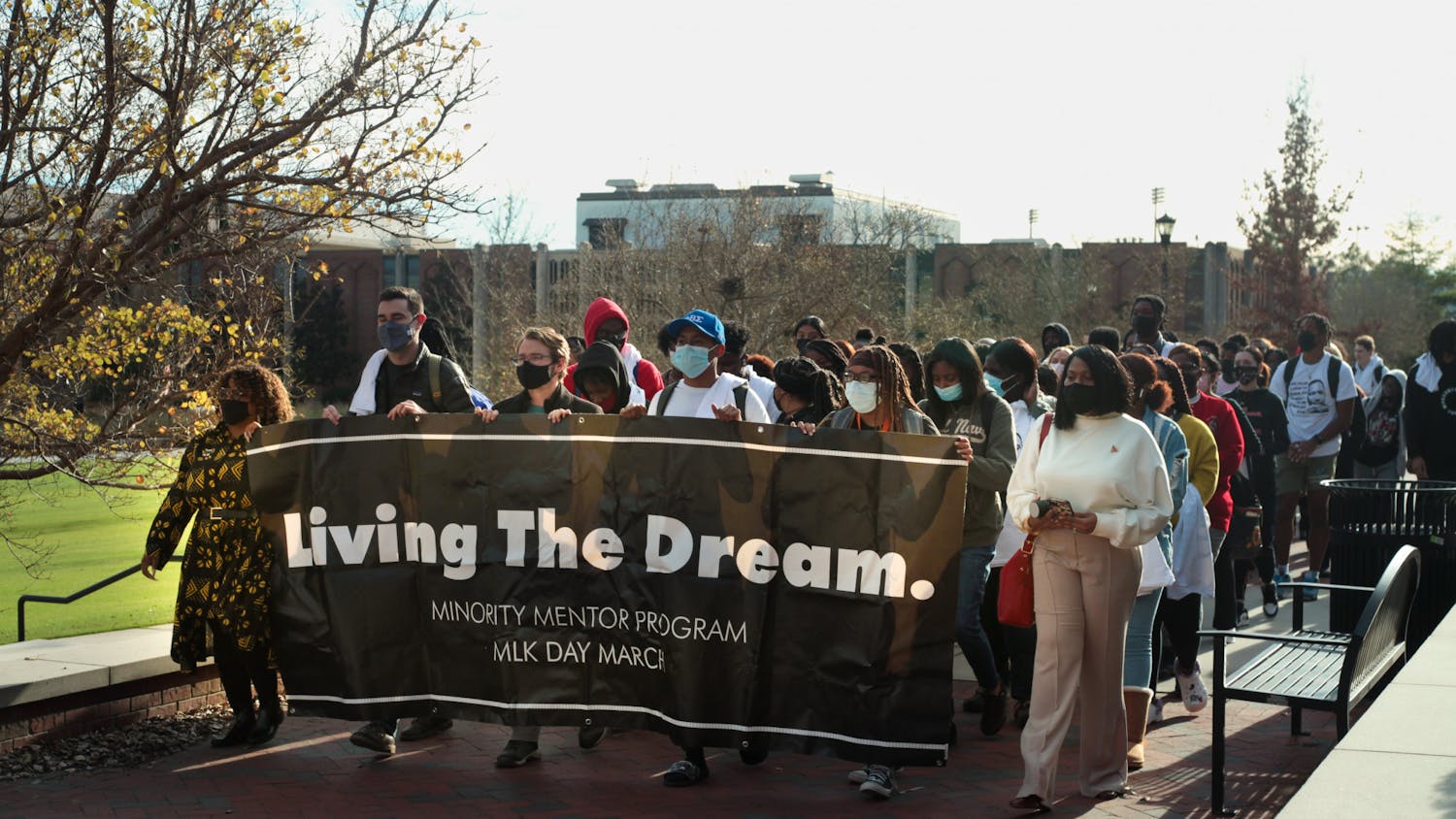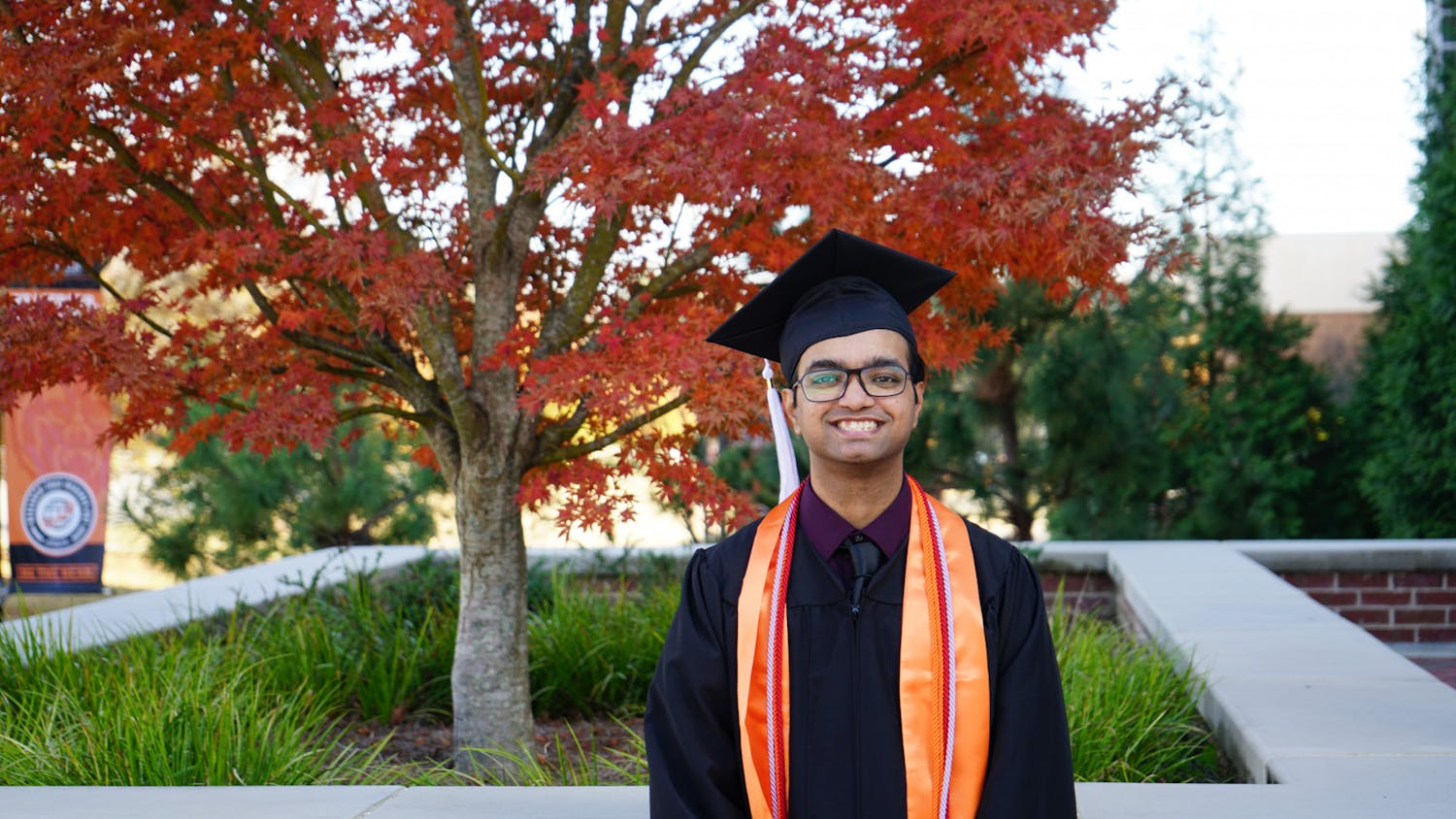For over 27 years, Linda Hensel has been teaching undergraduates at Mercer University as a professor of Biology. She now serves as the chair of the department at the head of the Biology, Organic Chemistry and Mathematical Modeling (BOMM) program at Mercer.
A few of the courses she teaches include Development, Biology of Aging, Microbiology and Immunology. Her favorite three classes to teach are Biology of Sex and Gender, Genetics and Introductory Biology.
With professor David Goode, Hensel runs the BOMM program where she develops biofilm research with her Introductory Biology students.
“Biofilms are important in many things,” Hensel said. “They secrete tiny molecules that communicate with each other. Once they reach a certain density, then there's a lot of those molecules which turn on this genetic probe program, and the ones that we are studying are the genetic program for biofilm formation.”
Biofilms are considered a virulence factor because they make the bacteria found throughout the body more virulent. They secrete biomolecules as well as the enzymes that link those biomolecules together as a large extracellular matrix. This matrix then protects the bacteria in your body from the immune system which can often be harmful to the body.
Each year, Hensel and her student researchers have been developing drugs to test against different biofilms with many of these students producing enough research to present at BEAR Day and research conferences all over the nation.
“Our research will improve our understanding of biofilms,” Hensel said. “We have a lot of students studying different biofilms in our research labs and the work they’ve been doing is phenomenal.”
Abdul Kaimari, a junior neuroscience major, has been part of Hensel's research team where they have been focusing on inhibiting biofilm pathways of pathogenic bacteria through efflux pump research.
“Dr. Hensel truly is a gem,” Kaimari said. “Upon completing the BOMM, I hypothesized that our BOMM-synthesized drugs might inhibit efflux pumps rather than the quorum-sensing receptor sites. Accordingly, I compiled an annotated bibliography and presented the topic to Dr. Hensel and with great enthusiasm. She accepted the project and aided me in obtaining the proper bacterial strains, navigating through research problems, and developing proper testing protocols.”
Through Hensel's training, Kaimari said he experienced firsthand the steps of the scientific method and successfully navigated through its predicaments. Kaimari’s research is now in the process of being published.
Many of Hensel’s students have enjoyed her teaching style and found her to be passionate and expressive with the way she teaches. Kya Haywood, a sophomore studying Biology and Latin, took Hensel for UNV 101 and Introductory Biology and is now taking her Biology of Sex and Gender and Supervised Research course even though Haywood had no idea about research before coming to Mercer.
“Dr. Hensel is a phenomenal teacher with a unique teaching style and personality, but I personally feel it lends very well to her ability to teach, especially in biology,” Haywood said. “She's an incredibly compassionate person and a bit of a jokester. I've never met someone who goes so far out of their way to attempt to educate themselves on things or communities they don't understand.”
Dontavious Jones, a junior with a major in Biology and minors in Chemistry and Spanish, has been a part of Hensel’s undergraduate research lab since August 2021 and has taken her classes, finding them challenging but worth the effort.
“It is not often that you encounter a professor who is passionate about both their work and their students,” Jones said. “Dr. Hensel has pushed me during my time working with her and she has helped me become the student that I am today. I can say with confidence that without Dr. Hensel seeing my potential and constantly pushing for my best, I would not be who I am today.”
Evan Floyd, a junior Biochemistry and Molecular Biology major and Greek language minor, is also a member of Hensel’s research and took her classes. He agrees with Kaimari, Haywood and Jones about the efforts she takes to help her students. Floyd has worked with Hensel to put together the patent-pending HEFY assay, which he says he could not have done without Hensel’s support.
Outside of teaching, Hensel also is an advisor for Common Ground and has previously written questions for the MCAT. Hensel also has a cat named Shadow and enjoys knitting on Tuesday nights with other fiber artists.





